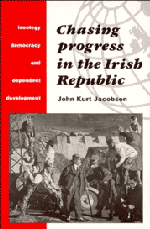Book contents
- Frontmatter
- Contents
- Acknowledgments
- Introduction
- 1 Reflex modernization: state, ideology and dependent development
- 2 Perils of planning: foreign capital, domestic policy, and the problem of state “strength”
- 3 The pale replica
- 4 The rising tide
- 5 Pushbuttons and pragmatists
- 6 Governability and corporatist compromise
- 7 Getting it right: debt, taxes, and industrial strategy, 1984–1990
- Afterword: 1991–1993
- Bibliography
- Index
4 - The rising tide
Published online by Cambridge University Press: 07 September 2010
- Frontmatter
- Contents
- Acknowledgments
- Introduction
- 1 Reflex modernization: state, ideology and dependent development
- 2 Perils of planning: foreign capital, domestic policy, and the problem of state “strength”
- 3 The pale replica
- 4 The rising tide
- 5 Pushbuttons and pragmatists
- 6 Governability and corporatist compromise
- 7 Getting it right: debt, taxes, and industrial strategy, 1984–1990
- Afterword: 1991–1993
- Bibliography
- Index
Summary
It is a cliché to suggest that there has been a shortage of ideas rather than capital in Ireland. The situation might be better explained by saying that those with capital had no ideas and those with ideas had no capital.
Labour Party Outline Policy: Industrial Development, 1969In 1962 Premier Georges Pompidou confided in the National Assembly that planning was “a little like the Kantian ethic: a text without obligation or penalty.” The role of the state was not to bully but to coax, guide, and enlighten investors and producer groups. French-style planning was manned by a congenial commissariat, not stern commissars. So in the 1960s Irish administrators squeamishly made way – minimal way – for a planning system designed to operate “only to the degree that it is compatible with the market.”
The French were exemplars but British behavior again dominated Irish actions. British entry to the European Economic Community seemed imminent, and the Republic could not afford to exist outside a common external tariff. “We are too small to influence others,” Lemass said, regarding EEC entry, “our link with England is first [priority].” This threat of market loss furnished the government with a decisive degree of leverage over the protected private industries.
Like Chile and Uruguay in the 1960s the Irish aimed to improve a small-scale industrial base, expand and diversify exports, and thereby diffuse dependence.
- Type
- Chapter
- Information
- Chasing Progress in the Irish RepublicIdeology, Democracy and Dependent Development, pp. 68 - 93Publisher: Cambridge University PressPrint publication year: 1994



